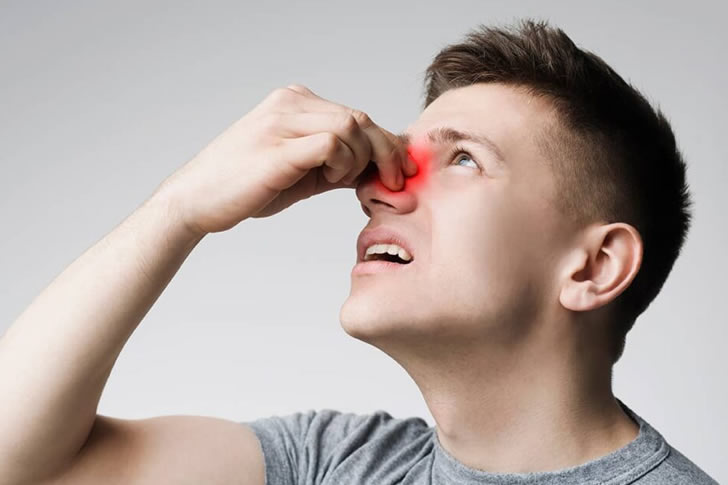Nasal polyps are noncancerous growths in the nasal passageways and sinuses that affect breathing. Understanding their symptoms and treatment is essential for managing this condition effectively.

Nasal polyps are teardrop-shaped, noncancerous growths found within the lining of the nasal passages or sinuses. Although they are often painless, they can lead to respiratory complications, infections, and other health issues if left untreated. It's crucial to understand their origins, symptoms, and the various treatments available.
Identifying the symptoms of nasal polyps early on can make treatment more effective. Here are some of the very prevalent symptoms:
Chronic Nasal Congestion:Persistent stuffiness in one or both nostrils is a common symptom. This congestion can be particularly bothersome because it doesn't seem to improve with traditional over-the-counter decongestants.
Runny Nose:Constant or frequent runny nose is another typical symptom of nasal polyps. This symptom can be confused with chronic rhinitis or allergies.
Facial Pain and Pressure:Many individuals with nasal polyps experience pressure or pain in their face, usually around the sinuses. This discomfort can mimic sinus infections.
Loss of Smell and Taste:Nasal polyps can inhibit the normal function of the olfactory sensors, causing a reduced or complete loss of the sense of smell and, consequently, taste.
Frequent Sinus Infections:Nasal polyps can block sinus drainage pathways, making the individual more susceptible to frequent sinus infections. These infections can cause additional symptoms like headaches, fever, and fatigue.
Snoring and Sleep Apnea:The obstruction caused by nasal polyps can lead to snoring and sometimes sleep apnea, disrupting sleep quality and overall well-being.
If you notice any of the above symptoms persisting, consult a healthcare professional. Diagnosis typically involves:
Once diagnosed, treatment for nasal polyps aims to reduce inflammation and size, and improve breathing. Here are effective treatment methods:
Medications:Nasal Corticosteroids:Nasal sprays like fluticasone or mometasone can reduce inflammation and size of the polyps. These are usually the first line of treatment.Oral and Injectable Corticosteroids:Doctors may prescribe oral prednisone or inject corticosteroids if nasal sprays aren’t effective. These are typically short-term solutions due to their side effects with prolonged use.Antihistamines:If allergies contribute to nasal polyps, antihistamines can help manage underlying allergic reactions.Antibiotics:If bacterial infections are present, antibiotics might be prescribed.
Surgical Options:Polypectomy:This minimally invasive procedure removes polyps using a small suction device or microdebrider.Endoscopic Sinus Surgery:For larger or more severe polyps, a more extensive surgical procedure using an endoscope might be necessary. This surgery not only removes the polyps but can also open sinus passages to prevent recurrence.
Alternative Therapies:Saline Rinses:Regularly rinsing the nasal passages with saline solution can help keep them moist and reduce irritation.Steam Inhalation:Inhaling steam can also alleviate congestion and promote sinus drainage.
In conjunction with medical treatments, some lifestyle changes can help manage the symptoms of nasal polyps:
Humidify Your Environment:Use a humidifier to keep the air moist, especially in dry climates or during winter. Moist air can reduce nasal irritation.
Avoid Irritants:Steer clear of allergens and irritants such as tobacco smoke, harsh chemicals, and strong odors, which can exacerbate symptoms.
Hydrate Well:Drinking plenty of fluids can help thin mucus, facilitating easier drainage.
Practice Good Hygiene:Washing hands regularly and avoiding close contact with people who have colds can reduce the risk of infections that may aggravate nasal polyps.
Follow a Healthy Diet:Some studies suggest that anti-inflammatory foods might help reduce nasal and sinus inflammation. Consider incorporating foods rich in omega-3 fatty acids, antioxidants, and vitamin C into your diet.
Regular Check-Ups:Regular medical follow-ups can monitor the condition and adjust treatments as needed to prevent recurrence.
Nasal polyps can significantly impact your quality of life, but understanding their symptoms and available treatments can help manage them effectively. Consult healthcare professionals for accurate diagnosis and follow recommended treatments, in combination with lifestyle adjustments, for optimal results.
Explore the Tranquil Bliss of Idyllic Rural Retreats

Ultimate Countdown: The 20 Very Legendary Gaming Consoles Ever!

Understanding Halpin and its Influence

Affordable Full Mouth Dental Implants Near You

Discovering Springdale Estates

Illinois Dentatrust: Comprehensive Overview

Embark on Effortless Adventures: Unveiling the Top in Adventures Made Easy Outdoor Equipment

Unveiling Ossur Valves: Innovation in Prosthetics

Unlock the Full Potential of Your RAM 1500: Master the Art of Efficient Towing!
